1924
The First Festival Following World War One
A four day music festival, as part of a run of triennial events.
The first Norfolk and Norwich festival following World War One came in 1924 and was a celebration of one hundred years of the Triennial. To help foster a celebratory mood, Henry Wood arranged for fanfares to be performed from the roof of St Andrew’s Hall, with snippets of works to be played later in the day.
The Queen Consort attended from Sandringham and Vaughan Williams conducted a performance of his Sea Symphony, going on to meet the royal entourage afterwards.
A young Benjamin Britten was in the audience for a concert featuring the music of Frank Bridge. This was to be a pivotal moment in his musical life, and after the two met during the 1927 Festival, Bridge would go on to become Britten’s viola tutor.
Dame Ethel Smyth, composer, conductor, and suffragette was also at the festival and conducted two of her own works from the podium.
To make the Festival more accessible, a scheme was launched by a local band which allowed people to pay for tickets in instalments. A total of 100 guineas was donated during the Festival and a quarter of this was given to the Norfolk and Norwich Hospital.
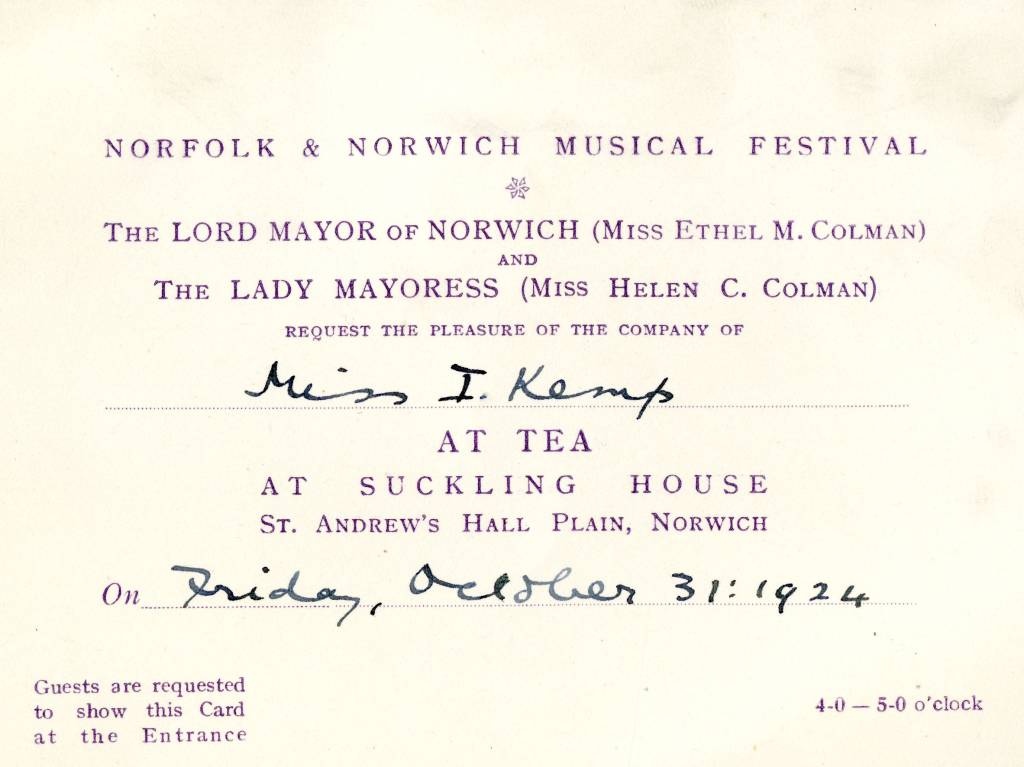
Chorus Member Tea Invitation, 1924. Image courtesy of Norfolk County Council Library and Information Service.
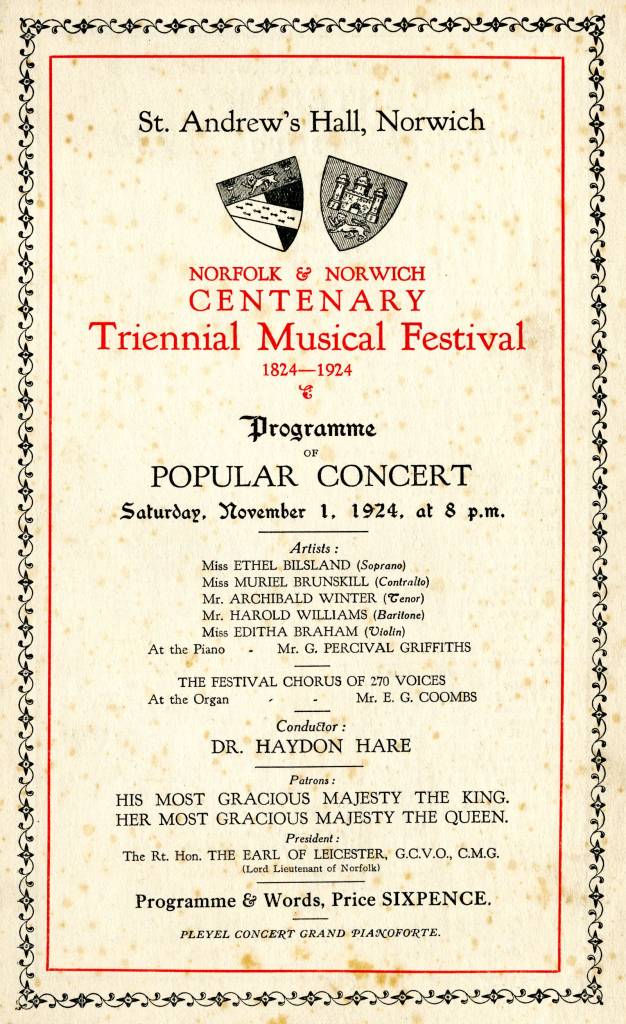
Programme, 1924. Image courtesy of Norfolk County Council Library and Information Service.
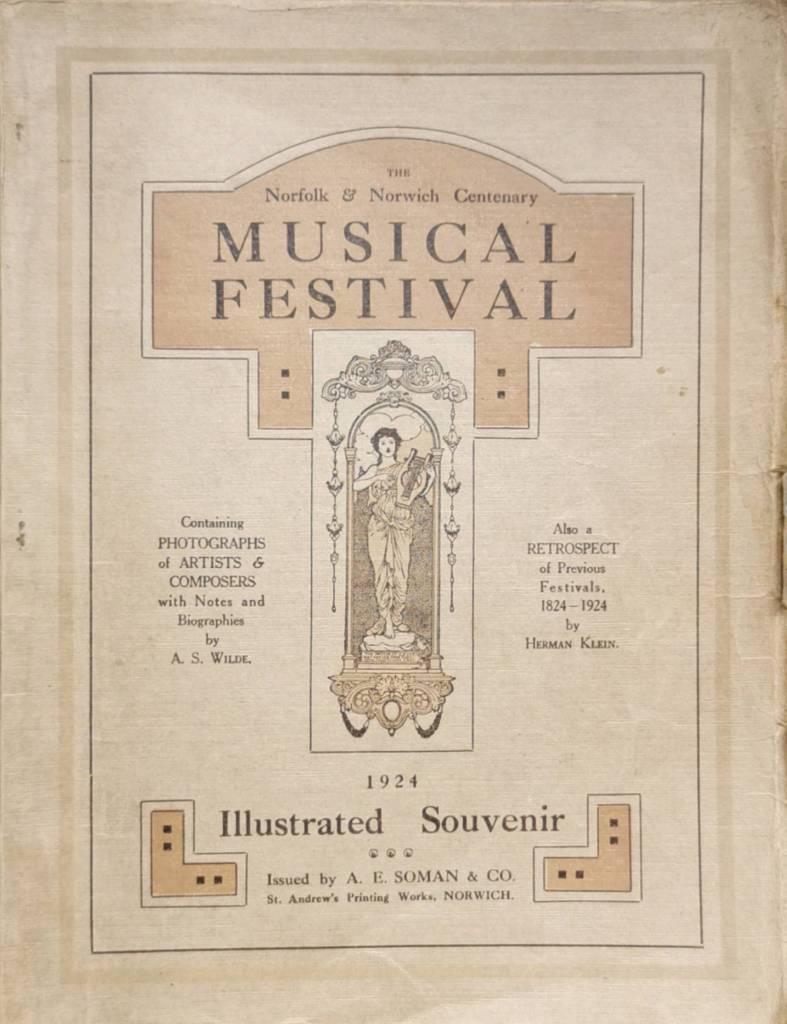
Illustrated Souvenir. Taken from the Norfolk & Norwich Festival Archive.
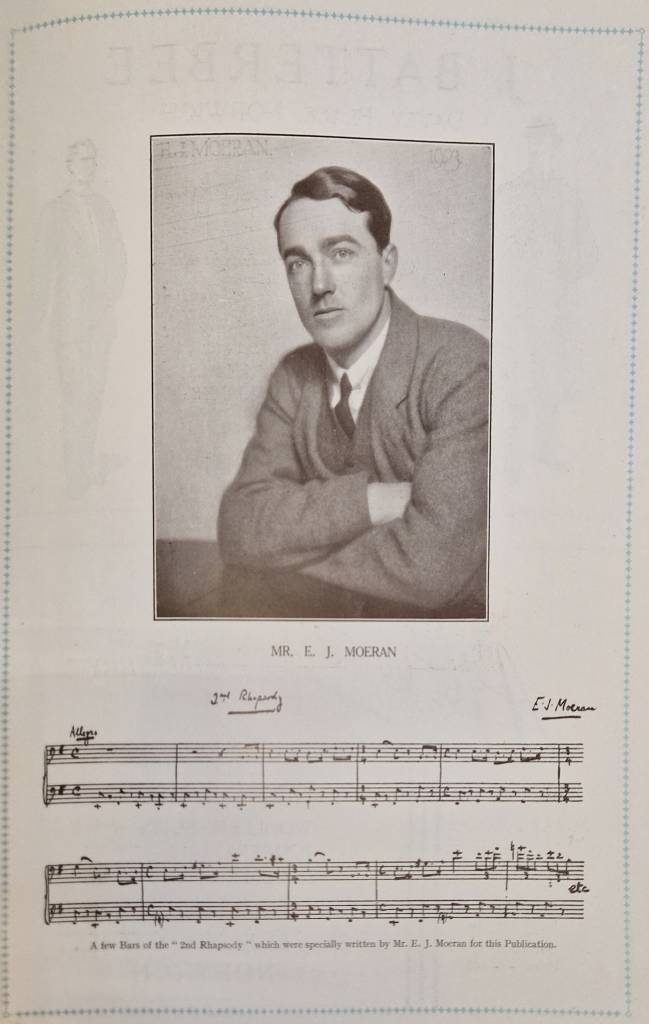
Photo and musical extract by Ernest Moeran, who composed a piece for the 1924 Festival. Taken from the Norfolk & Norwich Festival Archive.
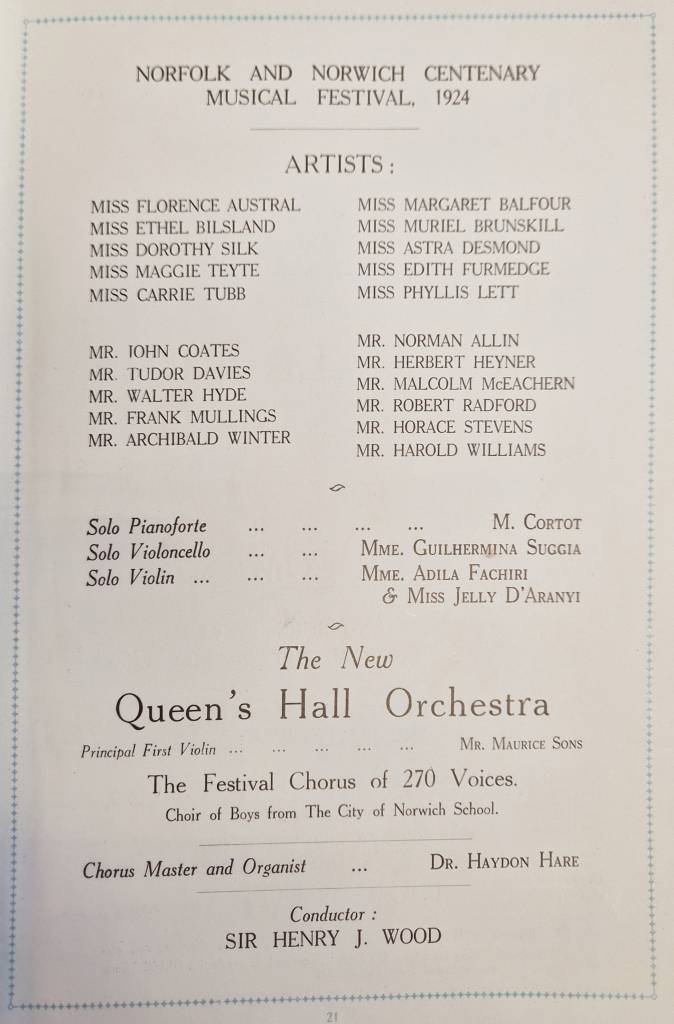
List of artists involved in the 1924 Festival, from the programme. Taken from the Norfolk & Norwich Festival Archive.
Dame Ethyl Smyth
Dame Ethel Smyth conducted two of her own works in the 1924 Festival, including the overture to The Boatswain’s Mate. Below is an HMV gramophone recording of it from 1916.
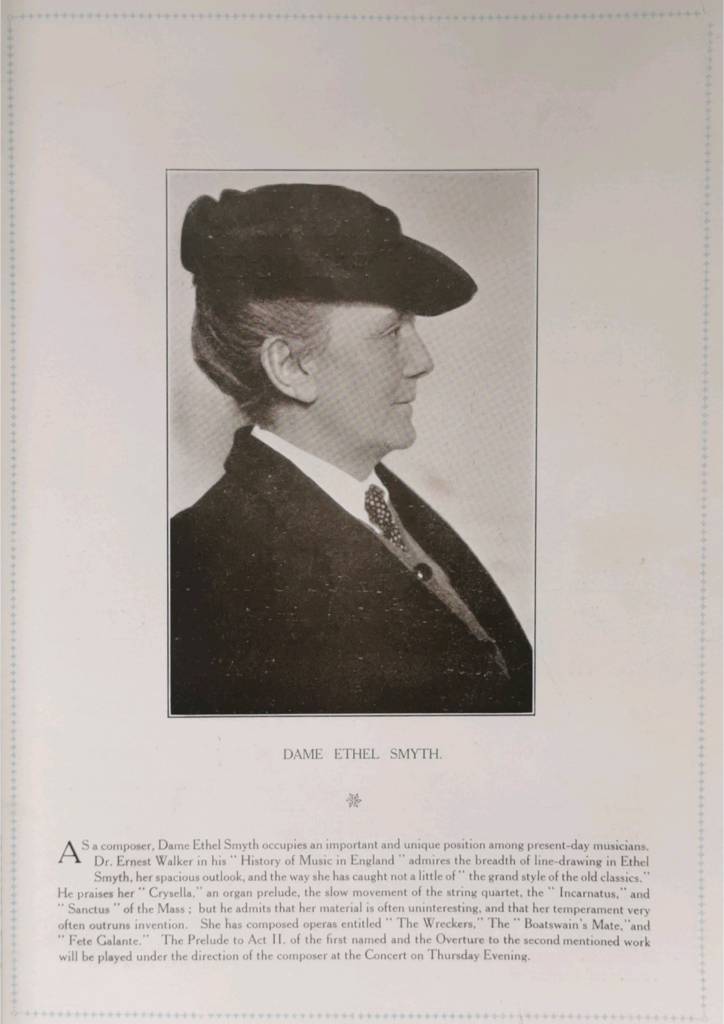
Taken from the Norfolk & Norwich Festival Archive.
Benjamin Britten
Below is a film about Benjamin Britten. He talks about his early memories of the Triennial Festivals and Frank Bridge (the section is between 14:56-16:02).